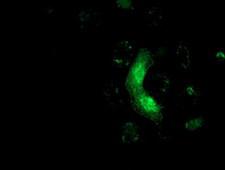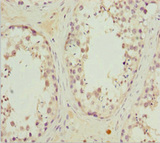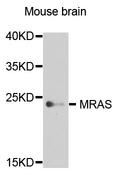order histories, retained contact details for faster checkout, review submissions, and special promotions.
Forgot password?
order histories, retained contact details for faster checkout, review submissions, and special promotions.
Location
Corporate Headquarters
Vector Laboratories, Inc.
6737 Mowry Ave
Newark, CA 94560
United States
Telephone Numbers
Customer Service: (800) 227-6666 / (650) 697-3600
Contact Us
Additional Contact Details
order histories, retained contact details for faster checkout, review submissions, and special promotions.
Forgot password?
order histories, retained contact details for faster checkout, review submissions, and special promotions.
MRAS
muscle RAS oncogene homolog
MRAS is a member of the Ras family of small GTPases. These membrane-associated proteins function as signal transducers in multiple processes including cell growth and differentiation, and dysregulation of Ras signaling has been associated with many types of cancer. The encoded protein may play a role in the tumor necrosis factor-alpha and MAP kinase signaling pathways. Alternatively spliced transcript variants encoding multiple isoforms have been observed for this gene.
| Gene Name: | muscle RAS oncogene homolog |
| Family/Subfamily: | Ras GTPase superfamily IPR001806 , RAS oncogene |
| Synonyms: | MRAS, M-RAs, Ras-related protein M-Ras, Ras-related protein R-Ras3, RRAS3, Muscle RAS oncogene homolog, R-RAS3, Muscle and microspikes RAS |
| Target Sequences: | NM_012219 NP_036351.3 O14807 |






If you do not find the reagent or information you require, please contact Customer.Support@LSBio.com to inquire about additional products in development.









